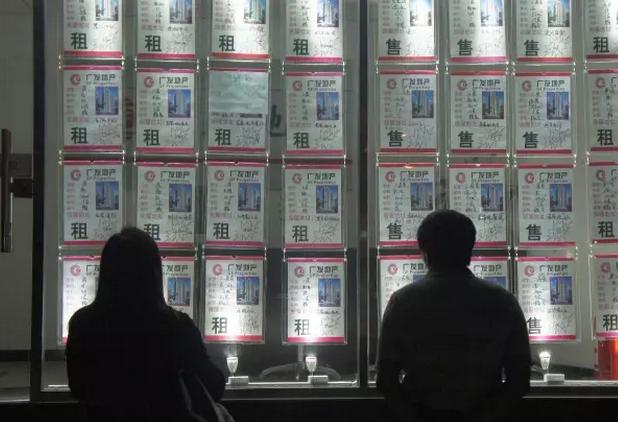The real estate agent said that housing prices in first-tier cities are falling, and buyers said that they "can’t feel it"
Cctv newsUnder the high pressure of policy, the property market continues to cool down. According to data released by real estate research institutions, the online signing volume of first-and second-tier cities such as Beijing declined in May. Among them, the number of second-hand housing contracts in Beijing in May hit a new low in 27 months. With the sharp decline in transaction volume, house prices are not so firm. Some real estate agencies even said that the second-hand housing prices in Tongzhou District and Yizhuang Development Zone in Beijing fell by 20%. Is it true?/You don’t say.

Market:The number of second-hand housing contracts hit a new low in 27 months.
It has been almost three months since this wave of the strictest property market regulation began in March this year. Under the impact of the combination of restricted purchases, restricted loans and restricted sales, the transaction volume of the property market in various places has declined in different degrees. Take Beijing and Guangzhou as examples:
Statistics from a large real estate agency show that the actual signing volume of the second-hand residential market in Beijing in May decreased by 34.2% compared with the same period in April, and the number of new customer registrations also decreased by 11.9% compared with the same period in April, and the market transaction activity has fallen to the bottom. As of May 30th, a total of 10,236 sets of second-hand houses were signed in Beijing in the month, and it is estimated that the number of second-hand houses signed in the whole month will be less than 11,000, which is the lowest value in the last 27 months.
In Guangzhou, the overall transaction volume of the property market in Guangzhou in May this year hit a new low in the past two years. As of May 29th, a total of 6,326 first-hand houses were sold in Guangzhou, which was the second lowest since May 2011, only higher than that in May 2014 (5,843).

Focus:The price increase in first-and second-tier cities has dropped.
The volume of transactions has fallen sharply. What is the trend of house prices?
According to the latest data released by the National Bureau of Statistics, among the 70 large and medium-sized cities in China, 30 cities saw their house price increase decline in April, 6 more than in March. According to preliminary estimates, the year-on-year increase in housing prices in first-tier cities fell for seven consecutive months, while the year-on-year increase in second-tier cities fell for five consecutive months. The data for May has not yet come out, but the situation is not expected to be better than that in April.
In terms of second-hand housing, the increase in house prices in most cities has dropped, and the price of second-hand housing in Beijing has stopped rising in April. And in May, according to a real estate agent statistics:
In May 2017, the average transaction price of second-hand houses in Beijing decreased by 2.4% compared with the same period in April.
Among the 12 regions with transactions, the average transaction price in 8 regions is falling, and the price in 4 regions is rising.
The biggest drop was in Tongzhou District and Yizhuang Development Zone, both of which exceeded 20%.
However, many Beijing buyers said that in terms of specific prices, there is still no obvious decline. In this regard, Li Wenjie, president of Beijing Real Estate Agency Association, said that the second-hand housing prices in Beijing have indeed dropped, but "down" means that compared with the high quotation of the owners listed this year, from the fourth quarter of last year to the end of the first quarter of this year, the second-hand housing prices are estimated to have increased by about 20%, so the current decline is still adjusted towards the level at the beginning of this year.
For example, in Tianjin, the news from the intermediary said that the price reduction of many communities ranged from 5% to 28%, with the highest drop of 28%. And from the current point of view, there is no sign of loosening the regulation of Tianjin property market.
In Shenzhen, since the introduction of a new round of control policies in Shenzhen last October, the transaction price of new commercial housing in Shenzhen has fallen for eight consecutive months. According to the data released by the Shenzhen Municipal Planning and Land Resources Committee on June 1, the average transaction price of new houses in Shenzhen in May was 54,512 yuan/square meter, down 0.2% from the previous month.

Trend:The property market is changing to a buyer’s market.
With a series of strict and strict regulation of the property market, the down payment and interest rate of loans for house purchase have both increased, and many buyers have suspended the pace of buying houses and are gradually turning from radicalism to wait and see, and the phenomenon of real estate speculation has been curbed. Experts said that at present, panic-grabbing houses, owner’s jumping prices and breaking contracts are basically gone, and the game relationship between buyers and sellers has gradually reversed and is changing to the buyer’s market.
According to industry insiders, in Beijing, the transaction volume of second-hand houses may be close to the bottom of the market. In terms of price, due to the excessive increase in the previous period, especially in some areas with double or multiple increases in the previous period, the decline may be further expanded.
Nationally, more than 30 cities, including Chengdu, Xiamen, Fuzhou, Qingdao, etc., have initiated the property market regulation policy of restricting the sale for a certain number of years after buying a house for the first time in history. It is widely predicted in the industry that with the continuation of regulatory policies, the overall housing prices in the country will be further adjusted back in the future. However, some insiders believe that the late trend of the property market still depends on the trend of credit interest rates and policy changes. If credit is loose, it does not rule out that house prices will continue to rise.